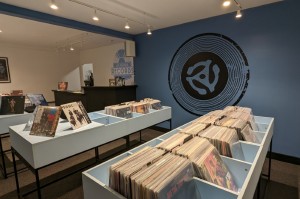“I kind of like the idea of being an outsider…” The Big Interview: Jessica Curry
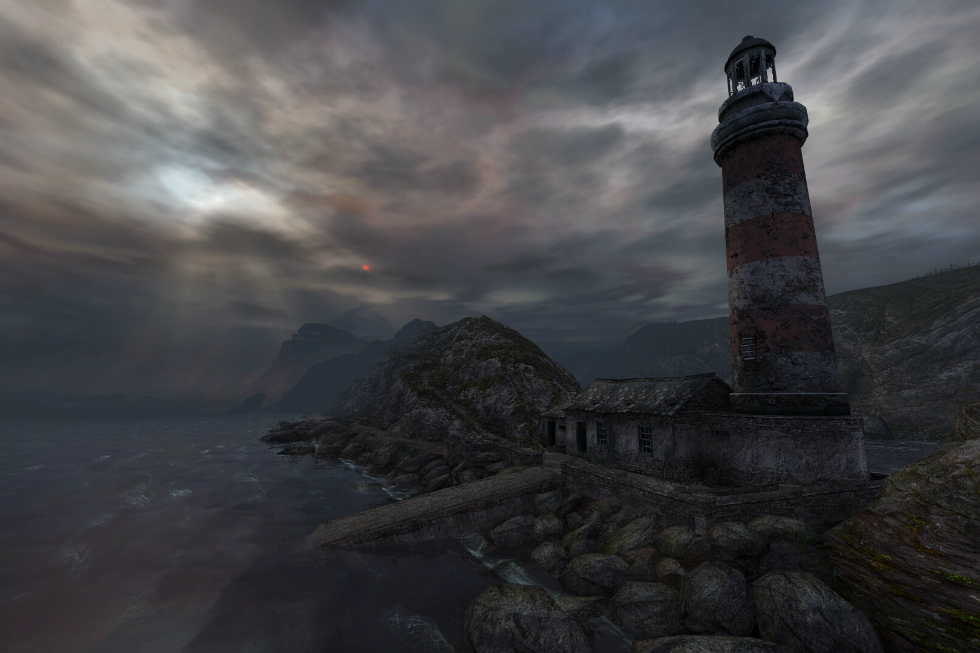
She writes scores for PlayStation and the poet laureate, studied English Literature at university, and has brought gaming to the theatre with electrifying results: BAFTA-winning composer and Dear Esther creator Jessica Curry speaks to Laura Robertson about her experimental body of work thus far…
“Dear Esther”, writes the dying narrator. “I have lost track of how long I have been here… I remembered nothing but water, stones in my belly and my shoes threatening to drag me under to where only the most listless of creatures swim.”
The view pans over a wind-swept Hebridean island, pitted with purple wild flowers and lashed by the sea. The sky darkens. The narrator writes letters to Esther: telling her (and us) about the history of the desolate island, his injuries, his guilt and fear (of what is yet to be revealed). We head down deep into caves, illuminated by phosphorescence. Strange markings and words – possibly biblical quotes – have been daubed on cliff walls; by the narrator, or some other poor soul, we don’t know. This island has been gripped by madness.
This is Dear Esther: a beautifully realised videogame, and an enthralling story of love and grief. Starting out in 2007 as a first-person free-to-play and officially released in 2012, it sent the gaming community into a frenzy; winning Best Audio at the TIGA’s, a GANG award and was nominated for a Best Audio BAFTA. 10 years on, its makers The Chinese Room have very sensibly transformed it into a genre-busting stage show: immersing the audience in the exquisite, terribly melancholy graphics, music and storytelling that brought it fame.
“Gaming is normally done at home, in your living room”, says its co-creator, BAFTA-winning composer Jessica Curry. “If it’s not just you, you’re with people you know. One of the things that I’ve always loved about theatre or film or opera or ballet is experiencing quite vulnerable, visceral, emotional things with complete strangers. It’s so weird, but it’s so beautiful. Having that moment of human connection. And that’s what I was really interested in doing with Dear Esther.”
The live show radically combines piano quintet, soprano, actor and gamer, who sit together on stage performing their own parts. We see the gamer play in front of a huge screen, but we don’t see the invisible ‘trip wires’ all over the island, which secretly inform the performers which segment to play out. So in theory, it becomes a different show every night.
What’s fantastic about the whole Dear Esther Live experience is how emotionally affecting it is; pushing the ambition of gaming to its very limits with a complex and layered plot – part mystery, part tragedy, part memoir – cinematic score, and state-of-the-art digital artwork. Its characters are brought to life through the grieving narrator’s one-way conversation with ghosts; writing letters to the departed Esther, with reference to two other occupants of the island, 18th century historian Donnelly and shepherd Jakobson. For the men, the island is a ‘Road to Damascus’; each experience a turning point in their lives from which they cannot turn away.
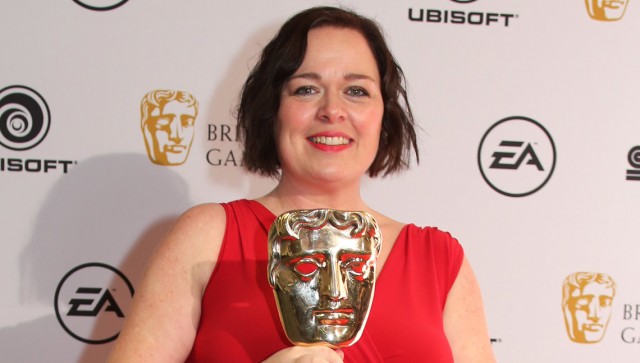
Time blurs, blood-ties are revealed, and the audience is left reeling by the narrator’s anguish. “I’ve heard it said”, he recounts with cold intensity, “that human ashes make great fertiliser, that we could sow a great forest from all that is left of your hips and ribcage, with enough left over to thicken the air and repopulate the bay.”
Curry and I speak over the phone, me in Liverpool and her in Brighton, after months on the road with Dear Esther Live. She’s a bloody busy woman: overseeing the last tour dates this week in Bristol (tonight) and Brighton (tomorrow). She’s also been working on the score for So Let Us Melt: The Chinese Room’s new game, it is a fairytale spanning 10 million years, and was released in September 2017 on Daydream VR. They’re in the middle of planning the next game and the studios’ future, but more on that later. She presents a Saturday night show for ClassicFM about video game music, High Score, which is the most popular show on catch-up in the station’s history. She’s preparing for her Sony PlayStation scores to be sung at The Royal Albert Hall in May. And to top it all off, she’s just been signed to Faber Music, who are releasing her portfolio on digital and vinyl and have commissioned her to write a new piece for choir and strings.
“I think it’s going to be a really nice year”, she tells me. “My goal was to write more music – I want to sit at my piano.”
Curry was born in Liverpool in 1973. She studied BA English Literature and Language at University College London, graduating in 1994, before studying Screen Music at the National Film and Television School for three years. How, I ask, did she turn these qualifications into a career composing music?
“I always studied music at school, but then I didn’t want to go to a conservatoire – I didn’t want the pressure. I loved English Lit, it was my other twin passion; I’ve worked so much with text and lyrics, so that has stood me in really good stead.
“I kind of like the idea of being an outsider. My mum is a writer, and she left school at 15. She always said: ‘I wrote a play before I’d ever read one.’ I found that so fascinating from an artistic point of view.”
Curry co-founded The Chinese Room in 2007 with husband and writer Dan Pinchbeck, with Dear Esther being their first collaboration for the studio. The alternative route into composition has obviously given her a completely different perspective, but has it restricted her in any way?
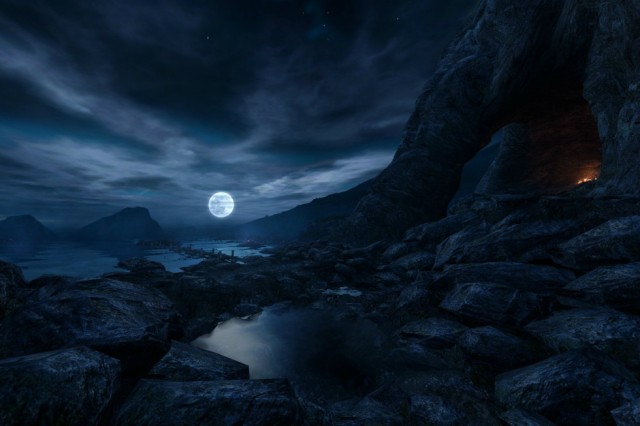
“The advantages are you are going to sound original – a lot of people study under the same composer, and you can hear it in their music. I didn’t have that. The disadvantage is that technically I sometimes feel quite constrained by the things that I don’t know.”
But, she continues, she “didn’t want a relationship with big Hollywood directors; I didn’t just want to serve a vision. I wanted to collaborate and push what music could do. I was really inspired by Peter Greenaway and Michael Nyman, in that there’s this amazing relationship where sometimes the music is stronger than the visuals, and sometimes the music takes a step back. That’s what I’ve been interested in doing with Dan; I think it’s really telling that there’s a writer and a composer at the head of The Chinese Room, and that we’re interested in telling stories and that what’s we are good at doing.”
It hasn’t all been plain sailing. Their studio won three BAFTAs (Best Game Innovation, Music and Performer) in 2015 for Everybody’s Gone to The Rapture, in which players have to find out what happened to the inhabitants of an abandoned village. Despite the critical acclaim, the production had been arduous and the studio was under enormous and constant financial pressure. Curry stepped down, describing being broken “emotionally and physically” after difficult dealings with Rapture’s publisher, Sony. At the time, she defined working with them as a “war of attrition… a slow erosion of the soul”.
“They struggle to understand a small company because they come from such behemoth, safe structures”, she says now, of the way clients like Sony work with indie developers. “Often when you’re at the end of a game, when you’re in that manic phase trying to get it done, that’s when you’re having to fundraise for the next project. It’s crazy. It’s a very unhealthy model.”
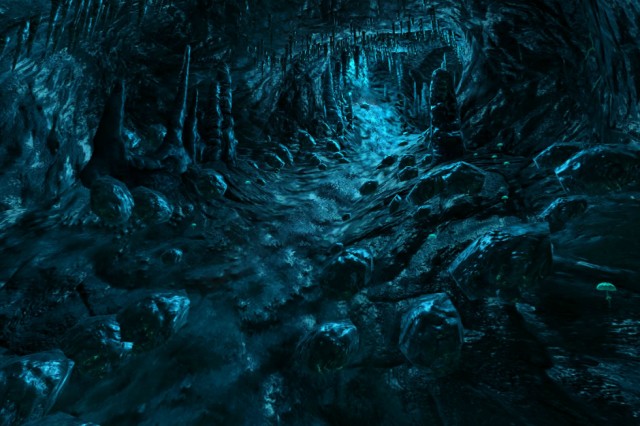
With the studio costing £40-50,000 a month to run, and no money coming in to fund the next project, an exhausted Curry and Pinchbeck decided to put The Chinese Room on hold last year. You could call it their own Road to Damascus-moment. “Dan and I are having long conversations about what we want for the future of the company… There is no amount of money, or project, that is worth being in that state for again.”
For the last two years, Curry has been careful to work on jobs that don’t stretch her to breaking point – being “very picky and choosy about who I spend time with in my working environment.” That’s included creating a score for BRASS Festival 2016′s Durham Hymns – “a dream” commission – with poet laureate Carol Ann Duffy. Created to commemorate soldiers from World War I, Duffy chose original source material from the period to form new poetry, which Curry then responded to with a new composition. A local community choir and 60-piece brass band performed the piece at Durham Cathedral.
“She was really inspirational to me”, says Curry of Duffy. “I’m really shy, and find it hard to say what I want without completely going into a Mr Bean/Hugh Grant tailspin. She’s really direct. She’s really friendly, but formidable in the best way. A lot of women get by by being quietly spoken and manoeuvring around people’s needs; she blew that out the water. She was decisive and unapologetic and it felt very honest as a collaboration.”
It proved a lesson learned for Curry.
“The best collaboration involves a lot of trust. Carol Ann gave me a lot of courage and confidence. What I learned is that you don’t always have to be liked; it’s really important to be respected. Often I’m bending my will so far to what people need, I exhaust myself to try to be popular, to please everyone. I’ve really changed since that commission… It sounds pathetic for a 44 year old to say that, but it’s taken me a long time to learn: it wastes your energy.”
We laugh about this and imposter syndrome for a bit – I can definitely relate – and talk more about that piano she’s just bought that she wants to play. I’ve been listening to her soundtracks online, and have now seen Dear Esther Live twice. I can report that Curry’s music burns with a soft intensity; mirrored in potency and vigour by Pinchbeck’s script. I’ll give the last word to Dear Esther’s poor protagonist; a favourite quote from the game in which he describes a rather disturbing dream:
“I dreamt I stood in the centre of the sun and the solar radiation cooked my heart from the inside. My teeth will curl and my fingernails fall off into my pockets like loose change.”
Laura Robertson
See Dear Esther Live’s final performance tomorrow, Friday 2 Feb 2018, 8pm, at the Brighton Dome – tickets £10-18.50
See the world premiere of PlayStation in Concert on Wednesday 30 May 2018, 7.30pm, at the Royal Albert Hall, London — £20-65
Images: Jessica Curry at the BAFTAs 2015. All other images stills from Dear Esther gameplay, courtesy The Chinese Room



